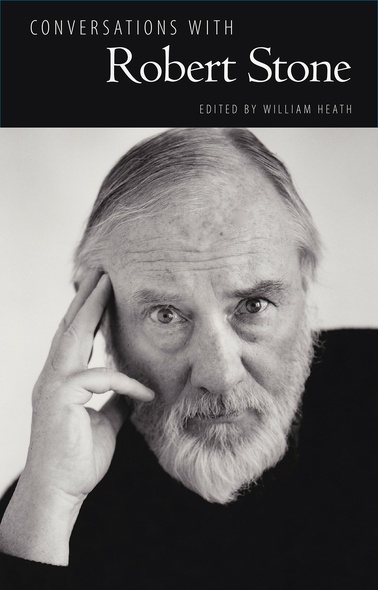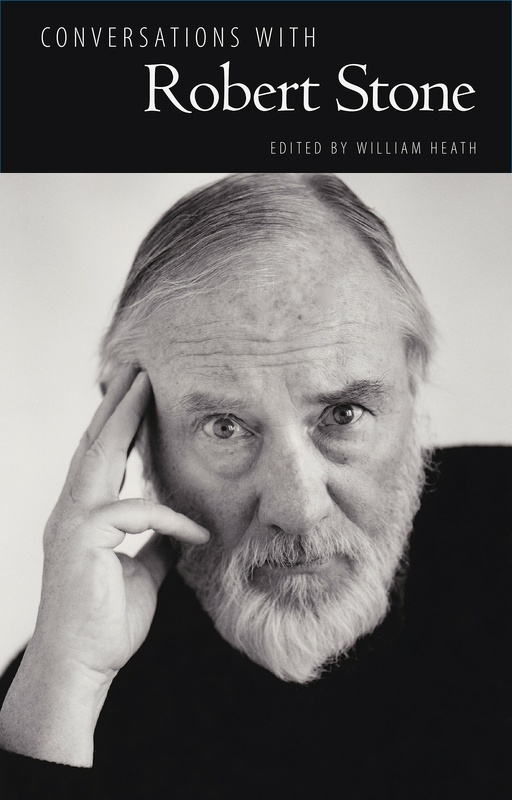
Conversations with Robert Stone
Ever since A Hall of Mirrors depicted the wild side of New Orleans in the 1960s, Robert Stone (1937-2015) has situated novels where America has shattered and the action is at a pitch. In Dog Soldiers, he covered the Vietnam War and drug smuggling. A Flag for Sunrise captured revolutionary discontent in Central America. Children of Light exposed the crass values of Hollywood. Outerbridge Reach depicted how existential angst can lead to a longing for heroic transcendence. The clash of religions in Jerusalem drove Damascus Gate. Traditional town-gown tensions amid twenty-first-century culture wars propelled Death of the Black-Haired Girl.
Stone’s reputation rests on his mastery of the craft of fiction. These interviews are replete with insights about the creative process as he responds with disarming honesty to probing questions about his major works. Stone also has fascinating things to say about his remarkable life—a schizophrenic mother, a stint in the navy, his involvement with Ken Kesey’s Merry Pranksters, and his presence at the creation of the counterculture. From the publication of A Hall of Mirrors until his death in 2015, Stone was a major figure in American literature.
William Heath is professor emeritus of English at Mount Saint Mary’s University. He is author of a book of poems, The Walking Man; three novels, The Children Bob Moses Led,Blacksnake’s Path: The True Adventures of William Wells, and Devil Dancer; and a work of history, William Wells and the Struggle for the Old Northwest.





